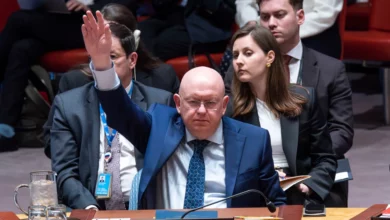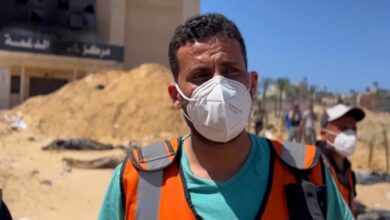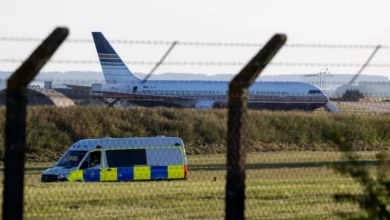Deputy Foreign Minister Faisal Mekdad said that only when Syria's own investigation was completed could it consider letting in an international commission of inquiry, set up by the UN Human Rights Council.
"I would like to assure the international community that those who committed violations of human rights will be held to account," Mekdad told reporters in Geneva.
"If our internal process is finished, we shall definitely study the possibility of receiving the human rights commission (of inquiry)," he said, declining to set a date.
Syrian authorities have cracked down hard on pro-democracy protests demanding an end to 41 years of Assad family rule that were inspired by popular uprisings that have toppled Arab leaders in Egypt, Tunisia and Libya this year.
More than 2900 have been killed in Syria since unrest began in March, the United Nations says.
Syrian forces killed at least eight people when they opened fire to disperse protests against President Bashar al-Assad after Friday prayers in Damascus and Homs, activists said.
On Friday, the UN Committee on the Rights of the Child voiced deep concern at "credible, corroborated and consistent reports of gross violations" in Syria, including the killing of youth in protests and in custody, torture and arbitrary arrests. At least 187 children have been killed, member experts of the committee told a news briefing.
"Many children are reported to have died as a result of torture and mutilation they were subjected to while being detained in connection with the protests," the committee said.
Mekdad led a senior Syrian delegation to the 47-member council that examined its record in a three-hour debate on Friday as part of its regular review of all UN member states.
In a speech pledging democratic reforms, he accused foreign powers of arming demonstrators and the media of waging a propaganda war against Assad's government.
More than 1100 security personnel have been killed in the unrest, up from the government's previous toll of 700, he said.
"I hope you will give us time, reform cannot be done when the Syrian people are being killed by extremist terrorist groups every day," he told the talks.
A UN spokesman said on Friday that the names of some security forces were on a UN list of 2900 documented deaths.
An initial UN team of investigators, in a report in August, said that there may be grounds for prosecuting Syrian officials for crimes against humanity. It had allegations that loyalist forces killed soldiers refusing to fire on protesters.
"It is a big lie, these allegations," Mekdad said.
After months of peaceful protests, some army deserters and dissidents have taken up arms, prompting military operations against them, especially in areas bordering Turkey and Jordan.
There had been no shelling of civilians and tanks were only used to protect security forces from violence, Mekdad said.
Syrian activists who attended the debate voiced outrage.
"Unfortunately the same propaganda as on Syrian TV has been repeated here. They say they have nothing to hide, then why not allow any fact-finding mission or commission of inquiry into the country?," Radwan Ziadeh, director of the Damascus Center for Human Rights Studies, told reporters.
More than 30,000 have been arrested, many held in schools and soccer fields converted into detention centres, he said.
During the UN debate, British, French and U.S. envoys called on Syria to halt executions, arbitrary detentions, torture and enforced disappearances of civilians.
Iran and Russia joined Cuba in praising reforms announced by Assad, including the lifting of an emergency law and holding of local elections due in December.
The UN Security Council failed to condemn Syria this week after Russia and China vetoed a European-drafted resolution.
"Unfortunately the lack of action by the international community only encourages the regime to continue its war against the Syrian people," said the US-based Ziadeh.




